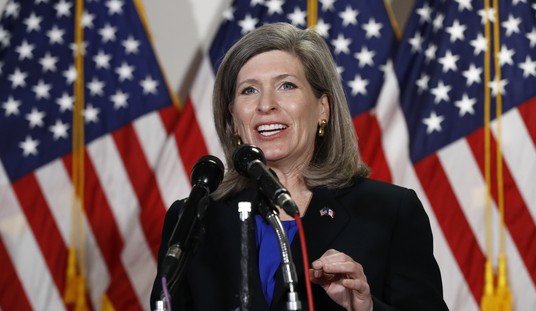Earlier this week the publisher of “American Dirt” cancelled several planned appearances by the author. The novel, which tells the story of a woman and her son fleeing Mexico to escape cartel violence, was initially praised by Oprah Winfrey and several Hispanic celebrities. However, strong pushback from the left over the authors identity has led some of the celebrities to delete their endorsements. Today, the publisher cancelled the remainder of the author’s book tour citing safety concerns:
“Jeanine Cummins spent five years of her life writing this book with the intent to shine a spotlight on tragedies facing immigrants,” Bob Miller, president and publisher of Flatiron Books, said in a statement Wednesday. “We are saddened that a work of fiction that was well-intentioned has led to such vitriolic rancor.
“Unfortunately, our concerns about safety have led us to the difficult decision to cancel the book tour.”
One of the main focuses of the detractors is the idea that author Jeanine Cummins, who is white, should not have attempted to tell this story:
The success of American Dirt has reiterated the message that the real-life experiences of Latinos, and immigrants, are only valid when they are packed with digestible, familiar stereotypes, as told through the lens of white, or white-passing, storytellers. The book affords its readers a safe distance between real immigrants and the caricatures presented in the book. American Dirt never fully addresses — or even tries to address — the real reasons why migrants come to the US, and the conditions they encounter when they arrive. Instead the book takes its fictional protagonist, Lydia Quixano Pérez, on a perfectly crafted obstacle course with a neat ending that is rarely, if ever, the one real migrants encounter.
Cummins set herself up for this criticism with an author’s note which suggests she was also not sure she was the person to write this.
“I was worried that, as a nonimmigrant and non-Mexican, I had no business writing a book set almost entirely in Mexico, set entirely among immigrants,” Cummins wrote in the author’s note. “I wished someone slightly browner than me would write it.”
“Lots of someones ‘slightly browner’ than Cummins did write it,” VanDenburgh wrote in response, noting several recent examples.
And that view seems to undergird most of the complaints about the book. Every mistake is seen as proof that the author was engaged in a form of cultural appropriation:
The story begins when Lydia, a bookstore owner, is celebrating her niece Yénifer’s 15th birthday, and a new cartel — the subject of Lydia’s journalist husband’s recent exposé — shows up to take revenge, killing everyone except Lydia and her son Luca. When the “sicarios” have emptied their clips and the “gunfire slows,” Luca can hear “a woman’s voice announcing ¡La Mejor 100.1 FM Acapulco!”
Quinceañeras have a special place in my heart, because I always dreamed of having one in my hometown of Taxco, Guerrero, just four hours north of Acapulco. But when I was 14 years old, my visa expired and I became undocumented in the United States, unable to travel to Mexico to celebrate my 15th birthday with family and friends. So let me set the record straight: No Mexican family would have a mere 16 people at a quinceañera, and no Mexican family would be listening to the radio at a quinceañera. Sure, we celebrate birthdays with cookouts and playlists; we don’t have a mariachi or banda at every pachanga — but this was a quinceañera! This is the opening scene and a cultural error that is a sign of things to come.
There are apparently lots of other flaws like this in the novel that, to many Mexican readers, suggest the author is looking in from the outside. Maybe that wouldn’t have mattered if this book had been dropped into the world with little fanfare. But the book sold for 7-figures, became an Oprah book club selection, was proclaimed a great American novel, and was likely to result in a feature film. Reading some of the critics, it’s clear they are angry that the culture at large didn’t see the flaws in the novel and didn’t care. In other words, I don’t think it’s the flaws in the book so much as it’s the elevation of the novel despite the flaws that is irritating some people.
But even if all of that is true, should it matter? It’s a novel. In this case it’s essentially entertainment, albeit entertainment with a message. Does every book on this topic have to be deeply researched and serious? Can’t some of them just be “beach novels”?
Whenever conservatives complain about some product of the culture that seems to misunderstand them or even be openly hostile to them (which happens pretty often on television), they are told to turn the channel. Why can’t the progressives do the same when they don’t like something? Instead, the urge seems to be to cancel whatever they don’t approve of and, in this case, it seems to be working.







Join the conversation as a VIP Member